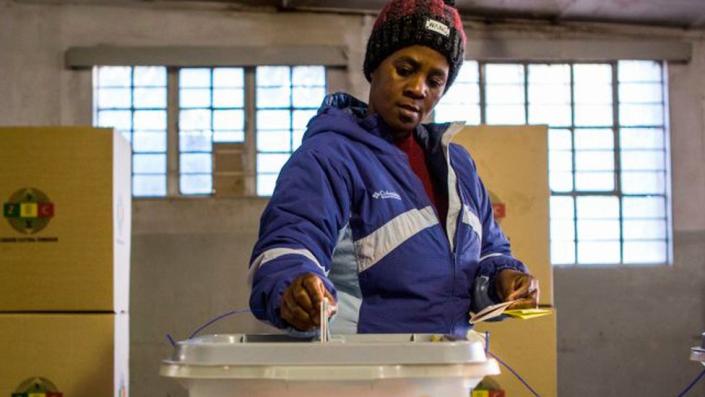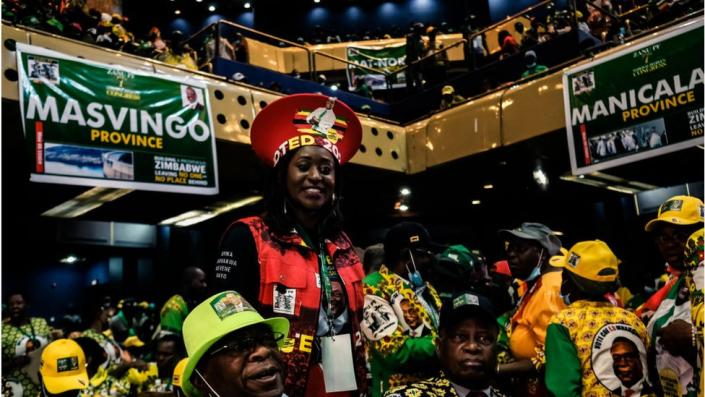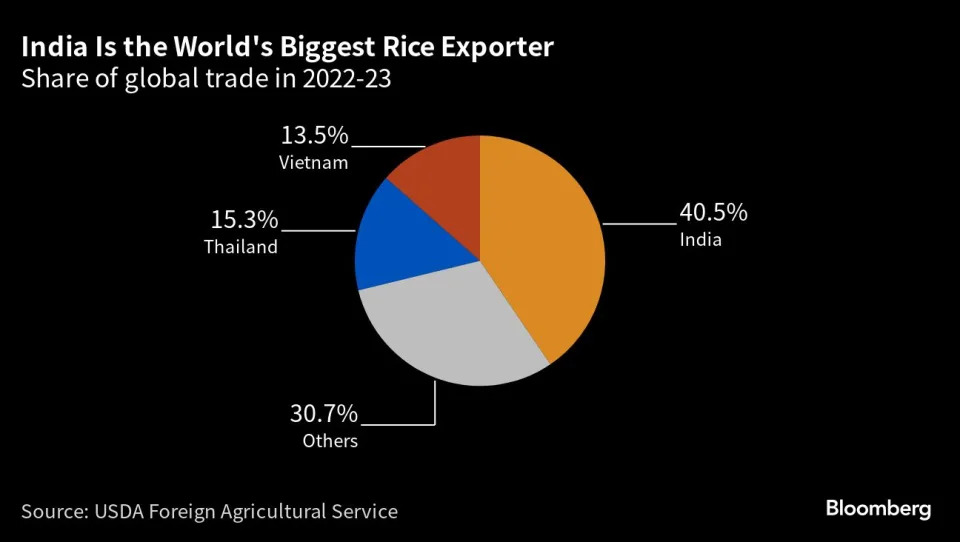Frances Schwartzkopff
Fri, July 14, 2023
(Bloomberg) -- The woman in charge of getting Europe’s toughest piece of ESG legislation through the bloc’s parliament says she’s confident the US will embrace the global accountability the bill introduces, once politicians stop being distracted by lobbyists.
US skepticism toward the legislation has perhaps “been confused a little bit by the lobbying going on,” said Lara Wolters, the lawmaker helming the passage of the Corporate Sustainability Due Diligence Directive through EU’s legislative chamber. This week, she worked to close any loopholes companies might try to use.
“What we’re after here is accountability and surely the US government doesn’t support a lack of accountability for causing or contributing to human rights harms,” Wolters, a Dutch member of the EU parliament who’s been in the chamber since 2019, said in an interview.
The comments come roughly a month after Treasury Secretary Janet Yellen warned of “negative, unintended consequences” stemming from CSDDD. If passed, the directive means large companies selling products and services in the EU — wherever they’re based — would risk civil lawsuits for failing to address human rights and environmental violations in their value chains. CSDDD would also require companies to have climate transition plans that are aligned with the Paris Agreement.
Yellen said in June that the Biden administration is “concerned about the directive’s extra-territorial scope.” There’s support for CSDDD’s high-level aims, but some requirements “where there is no clear nexus to the EU” are concerning, so talks are underway with the EU, Yellen said.
The EU’s plan to push ahead with CSDDD underscores the very different trajectory the bloc is on from the US when it comes to environmental, social and governance frameworks. In the US, Republicans have sought to ban ESG across much of the country, and are penalizing firms that embrace it.
In a hearing last month, US Representative Frank Lucas, a Republican from Oklahoma, said Europe shouldn’t set standards for US companies, and regulators must be “diligent” in “defending US sovereignty.”
The House Financial Services Committee is holding hearings this month, during which the matter is set to come up. Among legislation proposed by the GOP is a requirement that the US Comptroller “conduct a study on the detrimental impact” of CSDDD and of ESG reporting requirements.
In Europe, meanwhile, lawmakers and regulators are rolling out the world’s most comprehensive set of rules ultimately designed to reinvent capitalism and steer money into greener, fairer activities. Much of the legislation is global in scope, as it requires compliance from asset managers and businesses that target EU customers.
Though far from perfect in its execution of the huge array of measures being pushed through, the European Union has moved much faster than other jurisdictions with its ESG ambitions.
Wolters says that CSDDD is necessary because markets can’t be relied on to self-regulate.
“It’s our job as policymakers to make guard rails where market forces fail,” she said. “I think the aim is absolutely one that the US government probably can subscribe to.”
Regulatory focus on ESG risks in supply chains is already shaping corporate priorities. A recent survey by Deloitte showed that ESG is now the second-top concern of chief procurement officers. As recently as 2021, it ranked seventh.
As it’s currently worded, CSDDD would require ESG due diligence checks up and down the value chains of companies or subsidiaries with annual sales in the EU starting at €40 million ($45 million).
The directive also targets the finance industry. An analysis published in June by the European Central Bank found that the litigation risks for banks “may substantially increase” once CSDDD becomes reality. The ECB has recommended a gradual phase-in of the directive.
CSDDD has already made its way through the EU Parliament and lawmakers are now negotiating its final wording with the European Council and the EU Commission. Wolters says there’s little likelihood the cross-border scope of the directive will be curtailed.
“What we’re doing here is, we’re setting out how companies of a certain size, of a certain turnover, ought to behave when it comes to human rights and environmental harm,” Wolters said. “And in this case, where there is significant turnover within the EU, I think it’s only normal that we set rules for that.”
Bloomberg Businessweek
ESG investing: Virtue signaling or force for corporate good?
Ben Werschkul
·Washington Correspondent
Fri, July 14, 2023
BlackRock (BLK) CEO Larry Fink on Friday kept to his pledge to no longer use the acronym ESG. But he also made it clear that investors would be wise to keep their focus on climate concerns.
In its quarterly earnings announcement, BlackRock announced that assets under management rose to $9.4 trillion while net income rose and revenue fell. Then, in a conference call, Fink seized on a question about transition investing, which is loosely defined as putting money beyond the transition to a carbon-free economy.
He didn't refer to ESG — an acronym he believes has been "weaponized" by the left and the right — but called transition investing "probably one of the greatest opportunities in the world today." ESG stands for investing with environmental, social, and corporate governance principles.
"We're having more and more conversations with more and more corporations about how they think about their platform related to decarbonization," he added.
Fink has become a prominent face in the debate about ESG in recent years as Republicans in Washington now look to limit do-good investing.
Larry Fink, Chairman and CEO of BlackRock, on the floor of the New York Stock Exchange (NYSE) in New York City in April. (REUTERS/Brendan McDermid)
"One of the concerns I've got is the fiduciary responsibility of these investment groups like BlackRock," Rep. Blaine Luetkemeyer, a Republican from Missouri, said at a Congressional hearing this week.
Luetkemeyer is one of the leaders of the anti-ESG efforts expressing worry that "political agendas overshadow sound financial management."
'There's not a government that is not focused on this'
BlackRock has garnered much of the political attention because of its outsized power across the economy and the proxy voting power it holds at nearly every major S&P 500 company.
Fink is certainly not shying away from his focus on climate issues. He traveled earlier this week to the United Kingdom for a climate-themed event at Windsor Castle that featured King Charles III and President Joe Biden as well as other business leaders like Bank of America CEO Brian Moynihan.
U.S. President Joe Biden and Britain's King Charles III enter a climate engagement with philanthropists and investors at Windsor Castle on July 10. (Kevin Lamarque/Pool Photo via AP)
Fink on Friday emphasized that government actions around climate change represent much of the opportunity for investors in the years ahead.
"There's not a government that is not focused on this, [and] how do they successfully navigate their economy and energy and power is becoming one of the dominant conversations."
BlackRock itself has also taken an increasingly direct role in the energy transition by providing funding to companies looking to raise capital for energy projects.
On Friday, Fink touted a recent $700 million investment in Australian battery storage and a carbon sequestration project in the US.
For Fink, a focus on the climate will clearly be a long-term focus, saying, "We look at this as a multi multi-year growth opportunity."
Ben Werschkul is a Washington correspondent for Yahoo Finance.
Vinícius Andrade
Fri, July 14, 2023

(Bloomberg) -- Brazil is tapping banks for advice on the nation’s first-ever sustainable bond sale, a long-awaited transaction that’s expected to hit markets by the end of the year.
The Treasury said Friday it will work with Banco Itau BBA, JPMorgan Chase & Co. and Banco Santander Brasil SA to sell the notes and revise its framework for debt that relates to environmental, social or governance goals.
Brazil — home to the majority of the Amazon rainforest — is expected to debut in global ESG debt markets following an investor roadshow in late August or early September, a person familiar with the matter said last month.
The terms of the sale, including exact timing and size, were still being discussed, said the person, who asked not to be identified because the discussions were private.
Earlier this year, Brazil sold $2.25 billion of dollar bonds due 2033, luring strong-enough investor demand to up-size the deal. That was the country’s first debt offering in global markets in about two years.
Brazil plans to keep monitoring debt-market conditions for potential issuances of traditional external debt, according to the statement.

























